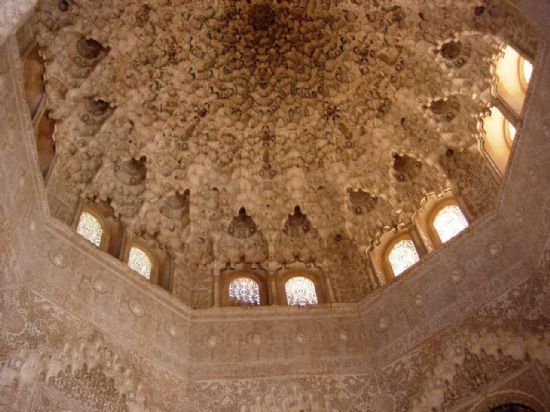Part travelogue, and part an anecdotal and historical account of a turbulent era of recent history, part autobiography and mostly fiction, The Aleppo is often like the journey once described by Guy de Maupassant as “…a door through which one goes out of the known reality and steps into another, unexpected reality resembling a dream.”
Madrid, 1936, the first day of the Spanish civil War, and Rosario gives birth against a backdrop of gunfire and chaos. Fear of reprisals from the Fascists force her family to flee to France, leaving behind the newborn Paloma. Their stay in France is short-lived as Hitler invades Europe. Fleeing unrest once again, Rosario, her husband Elias and their eldest daughter Carlota are reunited with Paloma and her grandmother Pepa who cared for her since her birth. After an agonising decision they find themselves on the move again, crossing the straits of Gibraltar and landing in Casablanca.

Their new home is ‘The Orchard’, a villa in the bohemian quarters where life is a haven of delight, fun, pleasure and wonderment. But after the tumultuous events of the preceding few years the wilful Rosario surrenders herself to an orgy of the senses and finally when her forbidden love for Father Clement, a catholic priest consumes her being, she relinquishes her maternal responsibilities to her mother Pepa.
Abandoned at birth, Paloma craves her mother’s love and hers is a tale of emotional turmoil, resilience, and spiritual inquiry. Carlota, a strange child her mother has always abhorred, has a sense of creeping darkness and she slowly becomes the family’s scapegoat.
To hold together the precarious life at ‘The Orchard’ is Pepa, the archetypal grandmother around whom the family revolves. She is the distributor of wisdom and selfless love.
Other characters in the novel are no less compelling but their evolution unfolds around the four lead women characters.
Over the years, ‘The Orchard’ becomes a furnace of emotions and relationships gone awry. Elias’ death after a long and protracted illness, signals the end of an era, and combined with growing hostility in Morocco against the French Protectorate, the family realises it is time to flee once more.
This epic story of a family in conflict, set against the backdrop of the second world war in an occupied multicultural French colony is deeply rooted in the human experience. It has an often humorous, whimsical and sometimes dark, but essentially optimistic outlook on how family relationships shape our souls.
Throughout the narrative, The Aleppo opens a window into a different way of life whilst never losing site of the universal themes that link all people. Deep seated memories and dreams of the author’s childhood and adolescence spent in Morocco weave effortlessly into the fantastical stories told by her own Spanish grandmother, the enchantment provided by the children’s ingenuousness, the notion of personal, national and spiritual identities, the predicament of the exile, colonial exploitation, the vivid depiction of Morocco’s exotic and ancient culture, where myths, religion and tradition are essential components of life.
Punctuated by a fusion of recurrent leitmotifs and vignettes, the novel is told in a linear fashion in the quiet storytelling style of the 19th century European novel as it shifts between a series of arrivals, departures, migrations, births and deaths, all of which take place under vast luminous spaces, narrow alleys, large and sumptuous houses and dingy apartments, echoing respectively, the expansiveness and claustrophobia of the surrounding landscape.
Author’s Notes
For readers unfamiliar with the Spanish civil war, The Aleppo is not an historical novel, therefore there are no footnotes or bibliographical references.
It is through the characters voices, fictional only in name, that the struggle of this war is recounted, lending the story an intimacy, poignancy and spirit no history book could realise.
It is only recently - after The Aleppo was completed - that today’s Spanish leader Sr. Zapatero began to set free Franco’s ghosts .after seventy years of a ‘Pact of Silence’ designed to keep war crimes secret. The Spanish Civil War was one of the most bitter and complex conflicts of the 20th Century, but politically, it has been a forgotten war. The recent unveiling of archives detailing the dictator’s atrocities, torture, murders and mass graves, only now being exhumed, is a vivid reminder of more recent wars. More recently still, an article in the Guardian newspaper (Page 26, 9th January 2009) by Giles Tremlett, detailed the thousands of children kidnapped under the Franco regime. Judge Baltazar Garzón has asked judges to add the missing children to the list of those disappeared under the dictators rule.
This Civil war has generated more books than any others, and for those readers keen to become acquainted with the facts there is no shortage of choice. But in Antony Beevor’s introduction to The Spanish Civil War (Cassel) ,where he writes... “The Spanish Civil War is probably the most convincing reminder that the last word on history is impossible. The absolute truth about such politically passionate subjects can never be known because nobody can discard prejudice sufficiently.” The reader is forewarned that perhaps the individual human story is ultimately the closest to the truth.

 Mercedes Leyshon | sitemap | log in
Mercedes Leyshon | sitemap | log in
 Mercedes Leyshon | sitemap | log in
Mercedes Leyshon | sitemap | log in